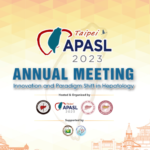From June 2nd to 6th, 2023, the American Society of Clinical Oncology (ASCO) Annual Meeting took place in a grand hybrid format in Chicago. ASCO Annual Meeting stands as one of the world’s largest, academically esteemed, and most authoritative international conferences in oncology. Encompassing cutting-edge advancements in all sub-specialties of oncology, the event attracts the attention of global oncology scholars. In the hematology poster discussion session, the AGILE study presented updates on efficacy and safety data (Abstract 7012). The results of this study were previously published in the prestigious journal “The New England Journal of Medicine” in April 2022. Professor Jianxiang Wang from the Hematology Hospital of the Chinese Academy of Medical Sciences, one of the AGILE researchers, provided insights into the latest data.
Research Overview
Updates Efficacy and Safety Data From the AGILE Study in Patients with Newly Diagnosed Acute Myeloid Leukemia Treated with Ivosidenib + Azacitidine Compared to Placebo + Azacitidine.

Background and Objectives
Ivosidenib (IVO) is an effective oral targeted IDH1 mutation inhibitor. In the AGILE study conducted on newly diagnosed IDH1-mutant acute myeloid leukemia (AML) patients, IVO + azacitidine (AZA) significantly improved event-free survival (EFS), overall survival (OS), complete remission (CR), and CR+partial hematologic recovery (CR+CRh) rates compared to placebo (PBO) + AZA. As of March 2021, the median OS (mOS) was 24 months (IVO+AZA) and 7.9 months (PBO+AZA; HR=0.44; p=0.0005). This update includes long-term follow-up data from the AGILE study.
Methods
In the AGILE study, patients were randomly assigned in a 1:1 double-blind fashion, with one group receiving IVO (500 mg QD) + AZA (75 mg/m2, subcutaneous or intravenous administration for 7 days), with a 28-day cycle; the other group receiving PBO+AZA. This update includes long-term follow-up data on OS, blood cell recovery, transfusion independence, and safety (as of June 2022).
Results
A total of 148 patients were randomized, with 73 receiving IVO+AZA and 75 receiving PBO+AZA. The median treatment duration was 10.8 months for the IVO+AZA group and 3.2 months for the PBO+AZA group. Five PBO+AZA patients crossed over to IVO+AZA after March 2021, and no correction for crossover was made in the updated OS analysis.
Overall Survival
At a median follow-up of 28.6 months, the mOS for the IVO+AZA group was 29.3 months (95% CI: 13.2-not reached), and for the PBO+AZA group, it was 7.9 months (95% CI: 4.1-11.3) (HR=0.42 [0.27, 0.65], p<0.0001). (Note: Literature reports a median OS of 15.2 months for venetoclax (VEN) combined with AZA in treating IDH1-mutant AML).
The 12-month OS rates for IVO+AZA and PBO+AZA were 62.9% and 38.3%, respectively, while the 24-month OS rates were 53.1% and 17.4%.

Blood Cell Recovery and Transfusion Independence
In the IVO+AZA group, hemoglobin levels steadily increased from a baseline of 88.8 g/L, reaching stability by the 8th cycle. The average platelet count rebounded early, recovering from a baseline of 72.7×109/L to 171.9×109/L by the 8th week and maintaining stability. The average neutrophil count rapidly rose from a baseline of 0.98×109/L to 3.99×109/L by the 3rd week and 4.36×109/L by the 4th week, subsequently stabilizing within the normal range.
The proportion of patients transitioning from transfusion dependence (red blood cell and/or platelet transfusion dependence) to transfusion independence was significantly higher in the IVO+AZA group compared to the PBO+AZA group, with rates of 53.8% and 17.1%, respectively (p=0.0004).
Safety
Compared to the PBO+AZA group, the IVO+AZA group had a lower incidence of neutropenia with fever, at 27.8% and 33.8%, respectively. The incidence of infections was also lower in the IVO+AZA group, at 34.7% compared to 51.4% in the PBO+AZA group. The rates of treatment-related adverse events leading to discontinuation were comparable between IVO+AZA (26.4%) and PBO+AZA (25.7%).
Conclusion
The latest data, compared to the initial analysis, show a further extension of 5 months in mOS with the IVO+AZA regimen, with a further reduction in the risk of death. Additionally, long-term follow-up data on transfusion independence, blood cell recovery, and safety further confirm the clinical and statistical stability of the benefits associated with IVO+AZA.
Study Commentary
The updated AGILE study data from ASCO 2023 indicate that Ivosidenib, when combined with azacitidine, is the first targeted therapy confirmed to improve event-free survival (EFS) and overall survival (OS) in treatment-naive IDH1-mutant AML patients, marking a significant advancement in frontline treatment for this patient population. Compared to azacitidine combined with placebo, the combination of Ivosidenib and azacitidine achieved a remarkable mOS of 29.3 months, further enhancing patient survival compared to the initial analysis. The more pronounced reduction in the risk of death makes Ivosidenib a promising new choice for frontline treatment in patients with IDH1-mutant AML.

– Deputy Director, Hematology Hospital, Chinese Academy of Medical Sciences
– 10th Chairman, Hematology Branch, Chinese Medical Association
– Vice President, Hematology Physicians Branch, Chinese Medical Doctor Association
– Vice President, Internal Medicine Physicians Branch, Chinese Medical Doctor Association
– Director, National Clinical Medical Research Center for Hematologic Diseases
– Deputy Editor-in-Chief, Journal of Hematology & Oncology (Impact Factor 7.4)
– Editor-in-Chief, Chinese Journal of Hematology (2012-2016)
– Chairman, Hematologic Oncology Committee, Chinese Anti-Cancer Association (2012-2015)


